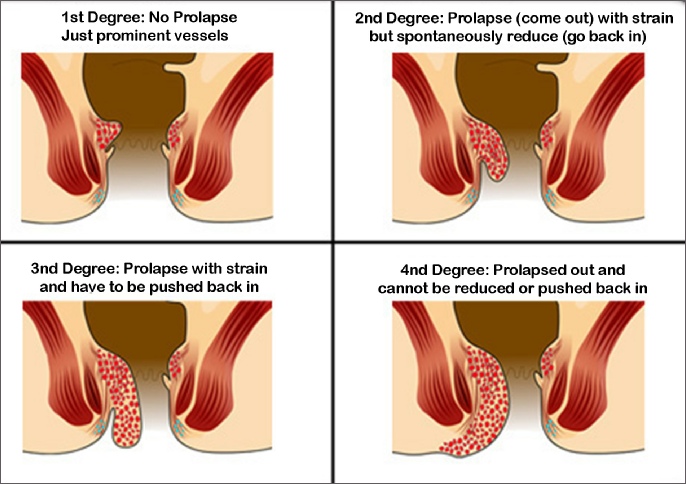Hemorrhoidectomy in Lebanon
Search and Compare the Best Clinics and Doctors at the Lowest Prices for Hemorrhoidectomy in Lebanon

Find the best clinics for Hemorrhoidectomy in Lebanon
No pricing info available
Ukraine offers the best prices Worldwide
Price: $ 170
From 38 verified reviews
Joyce Jabbour, 19 May 2020
It is a very nice hospital, very clean, the service is great, personnel is very friendly and professional. Great hospital! Well done. Thank you for being the best hospital in Lebanon
- Home
- Lebanon
WHY US?
At Medijump, we're making medical easy. You can search, compare, discuss, and book your medical all in one place. We open the door to the best medical providers worldwide, saving you time and energy along the way, and it's all for FREE, no hidden fees, and no price markups guaranteed. So what are you waiting for?

Free

Best Price

Widest Selection

Risk-Free
What you need to know about Hemorrhoidectomy in Lebanon

Hemorrhoidectomy is a surgical procedure to remove severe hemorrhoids or piles (swollen blood vessels inside or around the rectum and anus). This procedure offers a long-term solution for those who suffer from hemorrhoids, especially for those whose hemorrhoids are large, very painful, or bleeding.
What does the Procedure Involve?
Hemorrhoidectomy may be performed under general anesthetic (you’re put to sleep during the surgery) or local anesthetic. The surgery starts by gaining access to the anus, then the hemorrhoids are gently cut out using surgical instruments, such as a laser or surgical scissors. Then the wounds may be sealed with sutures or left open.
How Long Should I Stay in Lebanon?
You should be able to leave the hospital on the same day. However, you need to stay in Lebanon for around 14 more days or until your doctor says it is okay for you to travel as you should not sit for a long period of time during the recovery period.
What's the Recovery Time?
You may need about one or two weeks off work to recover, but you should not do any strenuous activities such as intense exercises and heavy lifting for about 3 to 6 weeks. The total recovery period may take as long as 6 weeks.
What About Aftercare?
Before you go home after the surgery, your surgeon will give you directions to care for yourself at home, such as taking stool softeners to reduce straining during a bowel movement, taking a Sitz bath, and eating a fiber-rich diet. You need to attend a follow-up checkup to monitor your condition, but you can do it with your local doctor. To prevent hemorrhoid from happening again, you should not delay using the toilet, do not spend too much time on the toilet (such as reading or using your phone in the toilet), and try to eat a diet full of green vegetables, fruit, and 100% whole grains.
What's the Success Rate?
Hemorrhoidectomy is very common and generally safe, but it carries some side effects and risks, pain, bleeding, infection, difficulty urinating, loss of control of the rectal sphincter, damage or narrowing of the anal canal, and allergic reaction to the anesthetic.
Are there Alternatives to Hemorrhoidectomy?
Some cases of hemorrhoids can be treated with over-the-counter medicines as well as a healthy diet and lifestyle. However, if you need further treatment, the alternatives to hemorrhoidectomy are rubber band ligation, sclerotherapy, coagulation, and hemorrhoid stapling. Make sure to discuss with your doctor the best option for your case.
What Should You Expect Before and After the Procedure
Before hemorrhoidectomy, you may experience uncomfortable and painful symptoms that interfere with your daily life. After the surgery, you will no longer experience any of the symptoms and your quality of life will be significantly increased.
Whilst the information presented here has been accurately sourced and verified by a medical professional for its accuracy, it is still advised to consult with your doctor before pursuing a medical treatment at one of the listed medical providers
No Time?
Tell us what you're looking for and we'll reachout to the top clinics all at once
Enquire Now

Popular Procedures in Lebanon
Prices Start From $514

Prices Start From $836

Prices Start From $961

Prices Start From $1

Recommended Medical Centers in Lebanon for Hemorrhoidectomy

- Interpreter services
- Translation service
- Religious facilities
- Medical records transfer
- Medical travel insurance
- Health insurance coordination
- TV in the room
- Safe in the room
- Phone in the room
- Private rooms for patients available

- Interpreter services
- Translation service
- Religious facilities
- Medical records transfer
- Medical travel insurance
- Health insurance coordination
- TV in the room
- Safe in the room
- Phone in the room
- Private rooms for patients available

- Interpreter services
- Translation service
- Religious facilities
- Medical records transfer
- Medical travel insurance
- Health insurance coordination
- TV in the room
- Safe in the room
- Phone in the room
- Private rooms for patients available
Hemorrhoidectomy in and around Lebanon
Lebanon, a country on the eastern shore of the Mediterranean Sea, is one of the smallest sovereign states. The country boasts a fascinating mixture of the Middle East and the West, Christianity, and Islam, and tradition and modernity. It has everything from golden beaches and World Heritage Sites to energetic nightlife and delicious cuisine. Among other countries in the Middle East, Lebanon appears to be one of the most popular medical tourism destinations. Over 10% of the tourists visiting the country, particularly from neighboring countries, come to receive medical care. Many hospitals and clinics in the country are accredited to the ISO:9000 standard and offer world-class specialist services in spine treatment, orthopedics, organ transplant, and other complex surgeries, as well as advanced cancer treatments. Cosmetic and reconstructive surgery are also popular.
Popular Parts of Lebanon
Beirut, the capital and largest city of Lebanon, is filled with historic landmarks and natural wonders. The most famous attractions in the city are the National Museum of Beirut, the Corniche and Pigeon Rocks, Sursock Museum, and Mohammed Al Amin Mosque. Many people also come to Lebanon to visit the port town of Sidon. Once a rich and thriving Phoenician city, it is dotted with historical monuments and ancient remnants, particularly in its Old City. Other popular cities include Tripoly, Baalbek, Byblos, and Tyre.
Weather and Climate in Lebanon
Lebanon has four seasons: winter (December to March), spring (April to May), summer (June to September), and autumn (October to November). Winter is the rainy season with high precipitation levels and cool temperatures. It is snowy in the mountains, but in some places, such as Beirut, it just rains during this season. Summer is hot, sunny, and dry, and can get very humid in cities located close to the sea. In the summer, the average temperatures are around 28°C to 30°C. Spring and autumn are both warm and pleasant.
Getting around in Lebanon
The main international airport where visitors fly into and out of Lebanon is Beirut–Rafic Hariri International Airport, which is the only operational commercial airport in the country. It serves international flights to numerous major cities across Europe and the Middle East, including Moscow, Paris, London, and Dubai. Given the small size of the country, there are no internal flights. Intercity buses and minibus are available and have an extensive network, especially in coastal areas. The best way to get around the country is by hiring a car (with a driver) or by using intercity taxis.
Tourist Visas in Lebanon
All visitors need to obtain a visa to enter and stay in Lebanon unless they come from one of the seven visa-exempt countries (including Kuwait, Bahrain, Qatar, Saudi Arabia, Oman, the United Arab Emirates, and Jordan). Citizens of 81 countries, including all EU countries, Australia, China, Canada, and the United States, are eligible for a visa on arrival for a maximum stay of 30 days. A conditional visa on arrival is available for citizens of 15 countries, including Algeria, Libya, Iraq, and Yemen.
Additional Information
- Local Currency: Lebanese Pound (LBP) is the official currency in Lebanon. 1 USD is equivalent to around 1,507 LBP. US dollars and the euro is widely accepted as well.
- Money & Payments: ATMs are widely available in many places around Beirut and other large cities. Many ATMs dispense both US dollars and Lebanese pounds. Credit cards, particularly Visa and MasterCard, are accepted at most major establishments. Tipping can be expected, usually around 10% to 15% of the bill.
- Local Language: Arabic is the official language in Lebanon. English and French are widely spoken as well, and many Lebanese can speak at least two to three languages.
- Local Culture and Religion: Islam (around 60% of the population) and Christianity (around 34%) are the primary religions in Lebanon. About 5% of Lebanese practice the Druze faith, while other religions are practiced by the remaining 1% of the population.
- Public holidays: New Year’s Day, Christmas Day, Eid al-Fitr, Eid al-Adha, All Saints’ Day, Resistance and Liberation Day, as well as Independence Day are some of the more important holidays in Lebanon.
Popular Searches
- Plastic Surgery in Thailand
- Dental Implants in Thailand
- Hair Transplant in Thailand
- Breast Augmentation Thailand
- Gastric Sleeve in Thailand
- Gender Reassignment Surgery in Thailand
- Laser Hair Removal in Bangkok
- Botox in Bangkok
- Dermatology in Bangkok
- Breast Augmentation in Bangkok
- Coolsculpting in Bangkok
- Veneers in Turkey
- Hair Transplant in Turkey
- Rhinoplasty in Turkey
- Stem Cell Therapy in Mexico
- Rhinoplasty in Mexico
- Liposuction in Mexico
- Coolsculpting in Tijuana
- Rhinoplasty in Korea
- Scar Removal in Korea
- Gastric Sleeve in Turkey
- Bone Marrow Transplant in India
- Invisalign in Malaysia
- Plastic Surgery in the Dominican Republic
- Tummy Tuck in the Dominican Republic
- Plastic and Cosmetic Surgery in Poland
- Rhinoplasty in Poland
- Hair Implant in Poland
- Dental Implants in Poland
- IVF in Turkey
